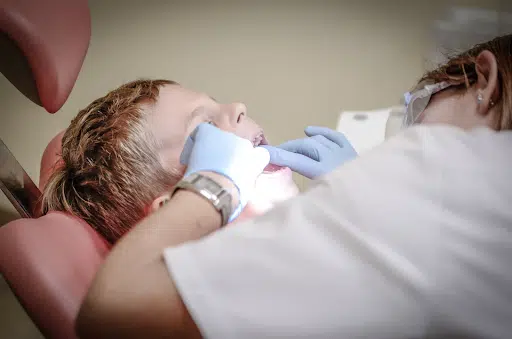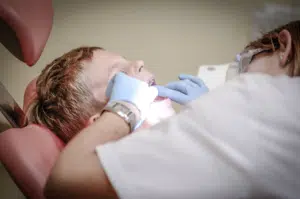
Are you experiencing persistent tooth pain or sensitivity? Has your dentist recommended root canal therapy? If so, you may have concerns or questions about this common dental procedure. Fear not! In this blog post, we will delve into the world of root canal therapy and explore how our team of top-rated dentists in Bonney Lake can save your natural tooth from extraction.
When faced with a tooth infection or severe decay, the thought of losing a tooth can be distressing. Thankfully, root canal therapy offers a viable solution to preserve your natural tooth and restore your oral health. By understanding the process, benefits, and aftercare involved in root canal treatment, you can make an informed decision and alleviate any anxiety you may have.
Understanding Root Canal Therapy
When it comes to tooth infections or deep decay, root canal therapy plays a vital role in saving your natural tooth. Understanding the basics of root canal therapy can help alleviate any fears or misconceptions you may have. So, let’s delve into what a root canal is, the causes of infections, and the symptoms that indicate the need for this treatment.
What is a Root Canal?
A root canal is the space within the root of a tooth that houses the dental pulp, which consists of nerves, blood vessels, and connective tissue. Root canal therapy, also known as endodontic treatment, is a procedure performed by a dentist or endodontist to remove the infected or inflamed dental pulp from the root canal and subsequently clean, disinfect, and seal the space. This process aims to save the tooth and eliminate the source of pain or discomfort.
Causes of Root Canal Infections
Root canal infections can occur due to various reasons, including:
- Deep decay: Untreated cavities can extend deep into the tooth, reaching the dental pulp.
- Dental trauma: An injury or fracture to the tooth can expose the pulp to bacteria.
- Dental procedures: Repeated dental procedures on a tooth may damage the pulp.
- Cracked or chipped teeth: Cracks or chips in the tooth can provide a pathway for bacteria to reach the pulp.
- Gum disease: Advanced gum disease can cause the infection to spread to the roots.
Symptoms Indicating the Need for Root Canal Therapy
Several signs and symptoms may indicate the need for root canal therapy. It’s important to consult a dentist if you experience:
- Persistent tooth pain, especially when chewing or applying pressure.
- Sensitivity to hot or cold temperatures that lingers even after the stimulus is removed.
- Swelling or tenderness in the gums near the affected tooth.
- Darkening or discoloration of the tooth.
- Persistent bad breath or an unpleasant taste in the mouth.
Recognizing these symptoms and seeking timely treatment can prevent the infection from spreading, alleviate pain, and save your natural tooth. You can also explore the 5 signs you might need a root canal treatment to better understand when it’s time to see your dentist.
The Root Canal Therapy Process
If your dentist recommends root canal therapy, understanding the step-by-step process can help alleviate any apprehensions you may have. Let’s explore the various stages involved in a typical root canal procedure.
Initial Consultation and Diagnosis
The first step is to schedule an initial consultation with your dentist or endodontist. During this visit, they will examine your tooth, review your symptoms, and may take X-rays to assess the extent of the infection. Based on their evaluation, they will determine if root canal therapy is necessary.
Steps Involved in a Root Canal Procedure
- Anesthesia and Isolation: Before the procedure begins, the dentist will administer local anesthesia to ensure your comfort throughout the process. They will also isolate the tooth using a dental dam, a small rubber sheet that keeps the area clean and dry.
- Accessing the Root Canal: Once the tooth is numb and isolated, your dentist will create a small opening in the tooth’s crown to access the root canal system. This step allows them to remove the infected pulp.
- Cleaning and Shaping the Canal: Using specialized tools, the dentist will carefully clean the inside of the root canal, removing any infected tissue, bacteria, and debris. They will then shape the canal to prepare it for filling.
- Filling and Sealing the Canal: After the root canal is thoroughly cleaned and shaped, a biocompatible material called gutta-percha is used to fill the empty space. The gutta-percha, combined with a dental adhesive, seals the canal to prevent re-infection. In some cases, the dentist may choose to temporarily seal the tooth for a few days to ensure the infection is completely resolved before placing a permanent filling or crown.
Common Concerns and Misconceptions
Root canal therapy has come a long way, and modern techniques and anesthesia make the procedure relatively comfortable for patients. It’s important to address common concerns and misconceptions associated with this treatment, such as it being painful or ineffective. The truth is that the procedure itself is not painful due to the administration of local anesthesia. Additionally, root canal therapy has a high success rate in saving natural teeth and alleviating pain caused by infection.
Explore how Root Canal Therapy Can Save Your Natural Tooth.
Benefits of Root Canal Therapy
Root canal therapy offers several significant benefits that make it a preferred treatment option for saving natural teeth. Let’s explore the advantages of undergoing root canal treatment and how it can positively impact your oral health.
Preservation of Natural Teeth
One of the primary benefits of root canal therapy is the preservation of your natural tooth. Unlike extraction, which involves removing the entire tooth, this treatment removes only the infected or inflamed dental pulp while leaving the outer structure intact. By saving your natural tooth, you maintain proper chewing function, aesthetics, and avoid the need for a dental bridge or implant.
Alleviation of Pain and Discomfort
Root canal infections can cause severe tooth pain, sensitivity, and discomfort. By removing the infected pulp and eliminating the source of infection, root canal therapy provides significant pain relief. Once the procedure is complete, patients often experience a significant reduction or complete elimination of the pain and discomfort associated with the infection.
Restoration of Oral Health
Infected root canals can have detrimental effects on your overall oral health. The infection can spread to neighboring teeth, gums, or even the jawbone, leading to more severe dental issues. Root canal treatment effectively removes the infection, preventing its further progression and allowing your oral health to be restored.
Improved Aesthetics and Confidence
When a tooth becomes infected or discolored due to root canal problems, it can affect your smile and self-confidence. Root canal therapy, followed by appropriate restoration such as a dental crown, can restore the appearance of the treated tooth, blending seamlessly with your natural teeth. This improvement in aesthetics can enhance your smile and boost your self-esteem.
Efficient and Cost-Effective Solution
Root canal therapy is often more cost-effective than tooth extraction followed by tooth replacement options like dental bridges or implants. It is a one-time procedure that effectively addresses the underlying issue, eliminating the need for multiple treatments or replacements in the future.
Long-Term Success
Root canal treatment has a high success rate, with treated teeth often lasting a lifetime with proper care. Following the procedure, it is essential to maintain good oral hygiene, including regular brushing, flossing, and dental check-ups from trusted dentists around your area, to ensure the long-term success of the treated tooth.
Root Canal Therapy: Saving Your Natural Tooth from Extraction
Don’t let tooth pain lead to extraction! Visit Dentistry at Bonney Lake for top-quality root canal therapy. Our experienced dentists, Dr. Navdeep Virk and Dr. Shameena Singh, are dedicated to saving your natural tooth and restoring your oral health. With root canal procedure, you can preserve your tooth, alleviate pain, and prevent further dental issues. Enjoy the benefits of a natural-looking smile and long-term cost-effectiveness. Book your appointment today by calling (253) 236-7456 or visiting our website. Don’t wait—save your tooth and regain your oral health with Dentistry at Bonney Lake!
New Patient Specials
New patients are invited to take advantage of one of our first-time visitor specials!
To claim the offer, screenshot or print the coupon and show it at your initial appointment.
$149 New Patient Special Plus $100 Off Your Second Visit*
**New patients only. A $369 value. Cannot be combined with other offers or insurance.
10% Off Same Day Dental Services*
**New patients only. Cannot be combined with other offers or insurance.
$100 Off When We Treat Two Family Members on the Same Day
**Cannot be combined with other offers or insurance.
New Patient Online Offer
Receive $100 off Future Dental Treatment
with a New Patient Exam
Call (253) 236-7456 today to schedule.
Ready to Book Now? Use our Online Scheduler
BOOK AN APPOINTMENT
Patients choose Dentistry @ Bonney Lake for our convenient scheduling, affordable pricing, outstanding service, and incredible results. Experience the difference today!



